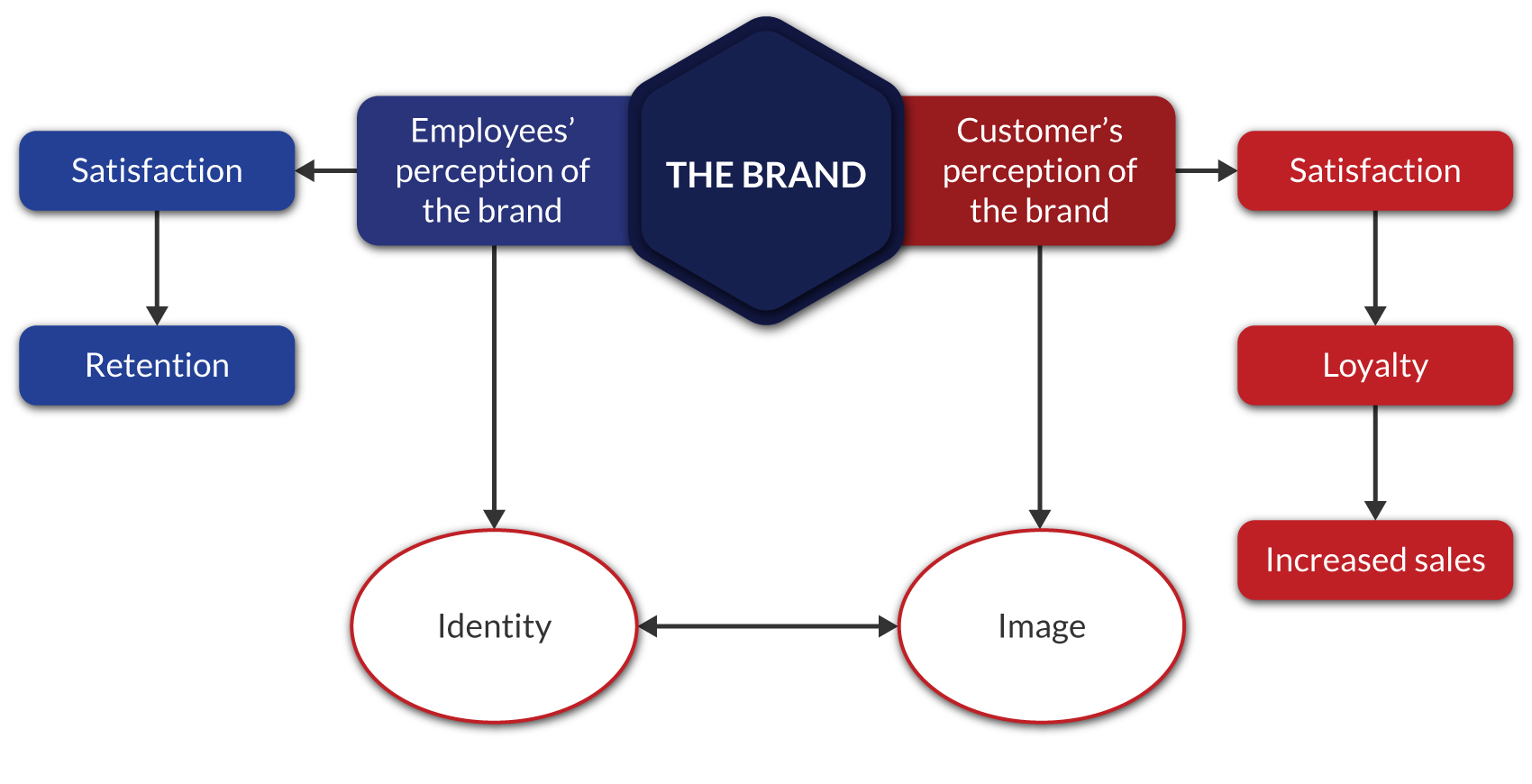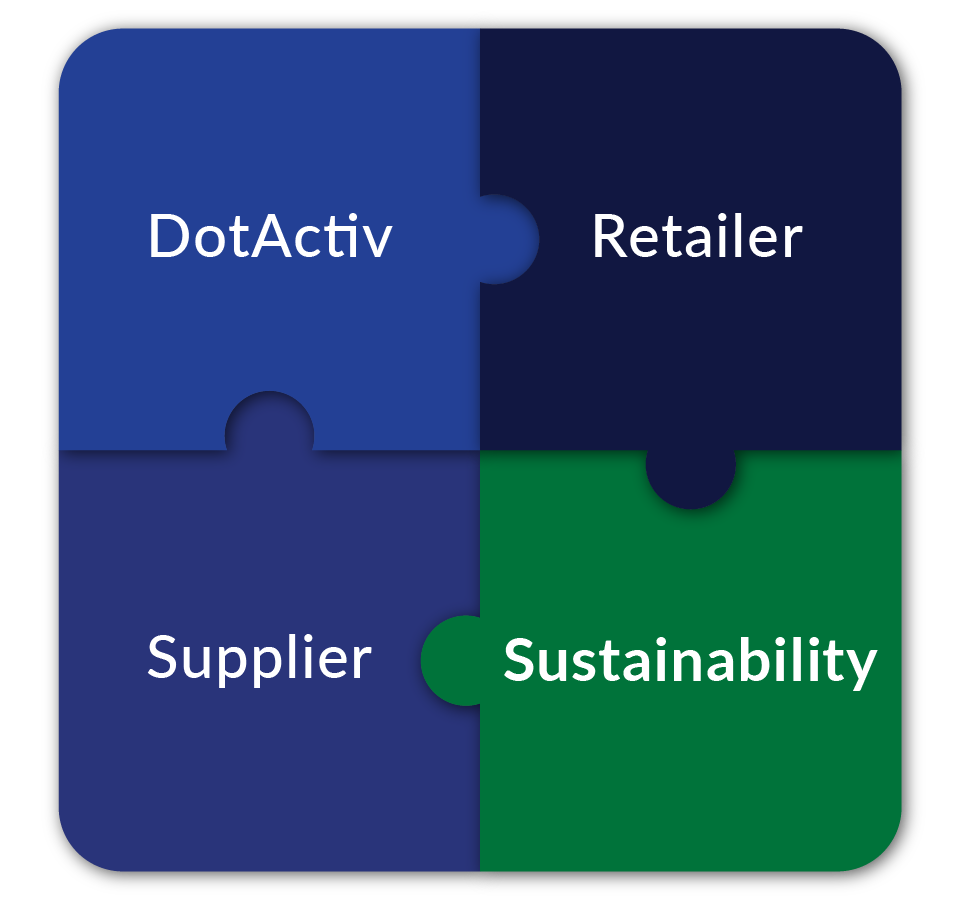NAVIGATING THE FUTURE WITH RETAIL SUSTAINABILITY

Retail businesses are ethically responsible for influencing how they impact the environment, natural resources, and the bio socio-ecosystems left over for future generations.
Hartman et al. summarize it in Business Ethics: Decision Making for Personal Integrity & Social Responsibility. To stay relevant in today's market, retailers must adopt practices that cater to the current needs of consumers without jeopardizing the ability of future generations to meet their own needs.
Embracing retail sustainability is a crucial step in this direction.
According to the United Nations Environment Programme (UNEP), “the retail sector is a major driver of production and consumption patterns”, and retailers can “contribute to the promotion of sustainability issues within various groups of stakeholders”.
Retailers are thus responsible for being at the forefront of sustainable practices to influence others to work towards a better future for businesses and consumers.
Of course, moving towards a sustainable future is not only about morals. As consumer demand for sustainable product choices increases, it is becoming increasingly clear that adopting sustainable practices is actually a commercial imperative.
Did you know that two-thirds of consumers are willing to pay more for sustainable products? Or that 78% of US consumers want to purchase from environmentally friendly companies but are held back by the lack of viable options?
From a commercial perspective, there is also much to gain. 72% of respondents in an Accenture study on consumer sustainability reported they were actively buying more environmentally-friendly products than five years ago while 81% indicated they would buy more over the next five years.
Consumer demand for sustainable products is not just a trend, it's a growing movement. A survey by The Economist Intelligence Unit reveals a staggering 71% rise in online searches for sustainable goods globally over the past five years, signalling a shift in consumer preferences towards sustainability. Moreover, a McKinsey & Co. survey found that 66% of all respondents, and an impressive 75% of millennials, consider sustainability when making a purchase.
These statistics underscore the commercial value of adopting sustainable practices, as more and more consumers are aligning their buying decisions with their values and priorities.
& WHY IT MATTERS


As we move towards supporting retail sustainability across the global market, we knew it was time to enhance our software further. We aim to provide our clients with the tools to respond to shifting consumer preferences and improve the shopping experience, all while mitigating potential concerns about implementation time and resources.

We offer suppliers an exhaustive mix of category management software, training, support and professional services to empower them to help retailers grow their categories. With our software and services, suppliers can improve the performance of the categories in which their products are merchandised and gain influence over shelf positioning and space allocations.
SEE PRICINGDOTACTIV: PIONEERS OF RETAIL SUSTAINABILITY

We pride ourselves on developing superior category management solutions and market-leading processes to guide us. But we do all this to achieve our why statement.
Here's why DotActiv is the ideal company to drive this change:
We advise our customers on their assortments every day.
We have the credibility in the market to take a stand on this issue.
We have the software, processes, and methodologies needed to deliver remarkable performance, shopping experiences, and significant steps toward sustainability.
OUR PHILOSOPHY ON RETAIL SUSTAINABILITY
As a business catering to the global retail industry, we refuse to remain passive while others grapple with the issue of sustainability. That's because we have a uniquely important role to play.
Our focus on sustainability is driven by the belief that the sustainable retail business delivers long-term value to the consumer. By helping to stock high-quality, long-lasting products, we create a system that promotes minimalism over consumerism, which is better for both the environment and the consumer.
We recognize that retailers are directing their strategy and investment toward sustainable and responsible growth. That's why we offer category management solutions that help retailers evaluate the sustainability credentials of their products and overall brand. By providing insights and data-driven recommendations, we help retailers make informed decisions that match the needs of their customers without sacrificing their bottom line.
We also help retailers evaluate their own moral obligations and develop practices that align with their commitment to sustainability. We are committed to developing sustainable practices that support our clients in achieving their sustainability goals.
Our approach to sustainability is guided by the principle of organizational sustainability, which involves creating motivation within our organization to establish guidelines and processes that help retailers achieve their sustainability goals.

Consumer trends and research statistics show that customers want to shop sustainably but do not have many options. DotActiv will spearhead that change and empower retailers to meet consumer demand for more sustainable products.
OUR STRATEGY TO DRIVE RETAIL SUSTAINABILITY
DotActiv software plays a critical role in increasing the focus on sustainability in the global retail industry. This role is to provide retailers with the tools to respond to consumer preferences to improve the shopping experience and make it easier to shop sustainably.
We aim to achieve this in the following ways:

Added sustainable fields
Sustainable fields are a set of data points that define how sustainable a product is. Examples of the types of information being captured include, but are not limited to; whether it is reusable, recyclable, biodegradable, locally produced, vegan, organic, unethically produced, or a refill.
Focus on sustainable product choices
We have a standard range optimizer template that assigns additional points to the most sustainable products. By giving sustainable products more space and positioning them better, we can make it easier for shoppers to find such products on the shelf.
We use a standard range optimizer template that assigns additional points to sustainable products, helping retailers prioritize these products in their assortment decisions. This approach ensures that retailers can make informed decisions that prioritize sustainability, while still considering performance. By including more sustainable products in the range, shoppers benefit from having a wider selection of eco-friendly options to choose from.
Product positioning and space allocation
By strategically positioning sustainable products on shelves and giving them more space, we make it easier for shoppers to find and choose these products. This not only promotes sustainability but also enhances the overall shopping experience, ensuring that eco-friendly choices are more visible and accessible.


